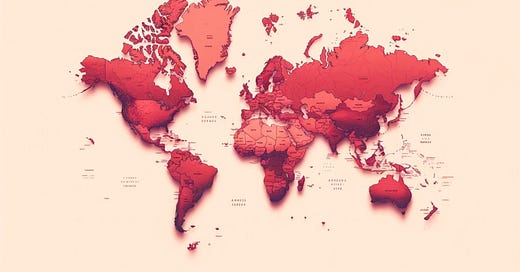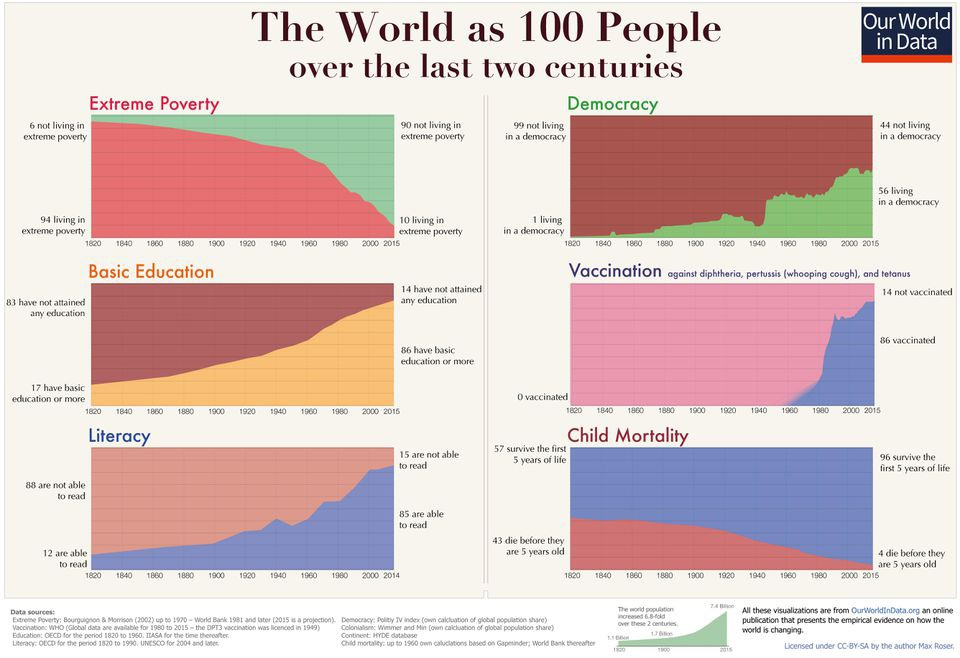The collapse of the international rules-based order
The system of laws that has governed the world since WW2 is gone, leaving anarchy
Key Takeaways
End of an Era: The international rules-based order, established after World War II, is collapsing, leading to increased global anarchy.
Erosion by Degrees: Key violations by major powers like the US and Russia, along with global inaction on issues like pandemics and cyberattacks, have gradually undermined the system.
US Election Stakes: The 2024 US Presidential election highlights a crucial debate between maintaining internationalism versus prioritizing nationalism amidst a crumbling global order.
On this Memorial Day, we honor the American Soldiers who have fought in the 12 major wars since the American Revolution and the almost 1.4 million who have given the ultimate sacrifice. 416,800 of these US troops died in WW2, the settlement of which created the international system of today. While it’s debatable how all segments of America fared from WW2 until now, it’s indisputable that this was a golden era for humanity. Global conflict has gone down, wealth has gone up, life spans have increased, the list goes on.
Many call the system created after WW2 the “international rules-based order”. This is a system of laws and institutions that govern the interactions of nations. The United Nation (UN) for governance, the World Trade Organization (WTO) for trade, the World Health Organization (WHO) for health, and many other organizations are examples of international institutions set up to uphold the international rules-based order after WW2. Unlike within a nation, where laws are enforced by police agencies, there is no enforcement mechanism of the international rules-based order besides war. I will argue that there is no longer any credible international rules-based order supported by a plurality of the world.
This week, the UN voted to end the war in Israel and the International Criminal Court sought an arrest warrant for Israel’s leader. Both actions will go nowhere. These actions are not the first nor will they be the last unenforced gestures that undermine the credibility of the international rules-based order. In this article, I am going to discuss the creation of the international rules-based order, its degradation, and how these issues are at the fore in the 2024 US Presidential election.
The creation
The victors of WW2, the “Big Three” consisting of FDR (US), Churchill (Britain), and Stalin (Soviet Union), created the modern world, including many institutions, borders, and systems for global governance. Of these, the most significant was the UN. The UN Security Council was set up as the ultimate governance body, consisting of 5 permanent members who were the most important nations in the world at the time: the US, China, the Soviet Union, Britain, and France. The rules were set up so the most important resolutions required a unanimous vote from all 5 permanent members.
Today, this structure has become obsolete. China and Russia are actively trying to undermine the system, like having the fox guard the hen house. Britain and France’s place as the most important nations in the world is questionable. And the developing world, notably the most populous nation on earth, India, is entirely absent.
Entire articles can be written on other global organizations, but the themes are the same.
1000 papercuts
The system created after WW2 has not been shattered in one global cataclysm, but rather by the slow degradation of the order over the last few decades. The most important principal of the international rules-based order is that national sovereignty cannot be unilaterally violated by force. The US invasion of Iraq in 2003 was unsanctioned by the UN and went against this principal. Russia’s annexation of Crimea in 2014 violated national sovereignty, and of course Russia’s invasion of Ukraine in 2022, the largest land war since WW2, did too. The UN was meant to end major conflict, but the US and Russia backed different sides in the Syrian Civil War (2011-2023) and the conflict killed 500k+ without arbitration.
But undermining of the international rules-based order isn’t confined to matters of war and peace. The pandemic exposed major fault lines within the WHO’s support, the world has been unable to agree on collective action to environmental problems, and global arms control treaties won during the Cold War have been shredded. The world is seeing a fragmentation of the technology standards that increasingly govern everything in the world. And cyberattacks between nations, violations of sovereignty in the 21st century, go unanswered and are increasing.
Globalism vs America First
Two strains have been present in US public opinion since 1776: internationalism and nationalism. Internationalism has been dominant since WW2 and is represented by President Biden in the upcoming Presidential election. This faction believes that American values must be upheld universally, everywhere in the world. The rationale for supporting Ukraine in their war with Russia is to uphold the international rules-based order, which Russia violated in 2022 when they invaded. Proponents of internationalism argue that the US must support Ukraine to deter China from invading Taiwan.
While it’s unclear how President Trump would handle Ukraine, his “America First” faction represents nationalism, a much older impulse of American public opinion and one dominant before WW1. Proponents of nationalism argue that America should prioritize the internal nation when utilizing its resources.
Internationalists don’t uniformly ignore American priorities nor do nationalists uniformly eschew international engagement. But if there was a spectrum from pure internationalism on the left to pure nationalism on the right, President Biden is closer to the left and President Trump is closer to the right.
I am arguing that the rules-based international order that internationalists are trying to protect is already gone. I’m not arguing against internationalism and for nationalism per say, but rather that for internationalism to be viable, there has to be a new international system.
Unfortunately, history tells us that such systems only emerge from the ashes of war (Thirty Years War, Napoleonic Wars, WW2, etc.). There is no rule that war is required to birth a new system but that is the historical pattern. Let’s hope that in this case, history doesn’t repeat itself.
As we celebrate Memorial Day and reflect on the sacrifices made by countless American soldiers, it's important to recognize the international rules-based order they helped build. However, this once-stable system is now unraveling. The upcoming 2024 US Presidential election will be a pivotal moment in determining the nation's stance on internationalism versus nationalism in a world where the old order no longer holds. While history suggests that new systems often arise from the ashes of conflict, there remains a glimmer of hope that we can forge a new path forward without repeating the catastrophic cycles of the past.






